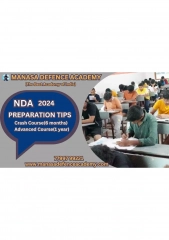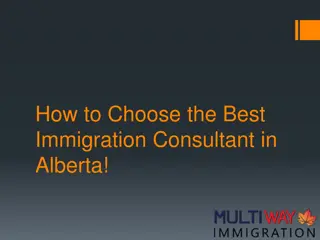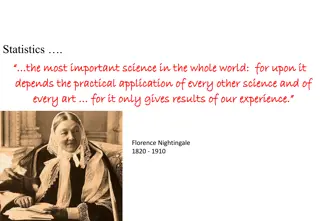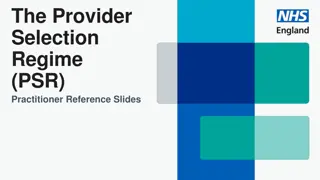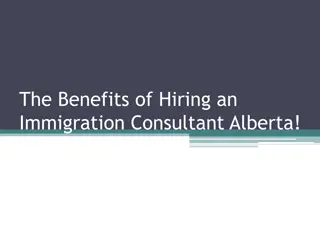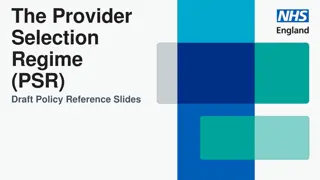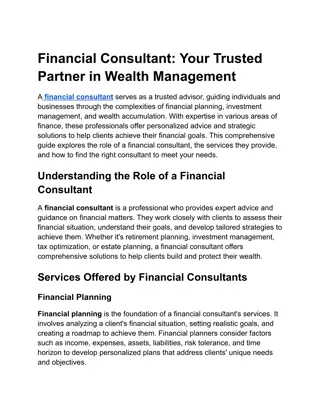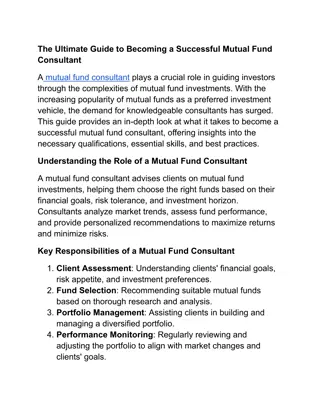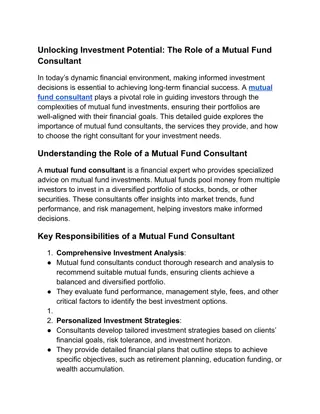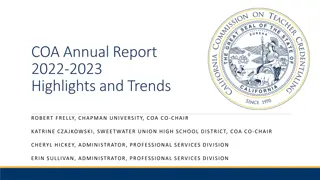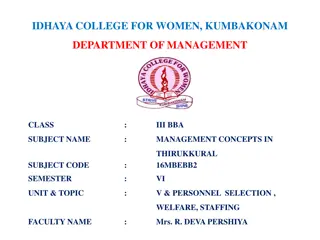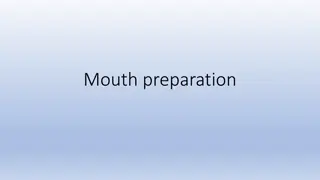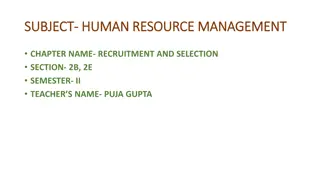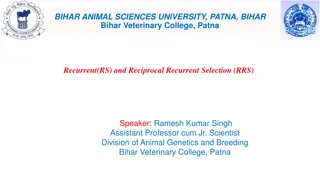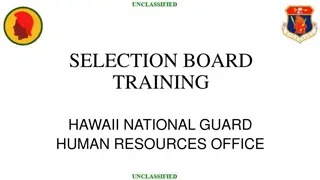
Prepare for Success: Consultant Interview Tips and Strategies
Discover valuable insights on how to stand out in a consultant interview, including types of questions to prepare for, self-awareness tips, and guidance on handling difficult scenarios. Explore the support and services offered to trainees, and get ready to showcase your clinical, academic, management, and personal backgrounds effectively. Ace your next interview with confidence and strategic preparation.
Download Presentation

Please find below an Image/Link to download the presentation.
The content on the website is provided AS IS for your information and personal use only. It may not be sold, licensed, or shared on other websites without obtaining consent from the author. If you encounter any issues during the download, it is possible that the publisher has removed the file from their server.
You are allowed to download the files provided on this website for personal or commercial use, subject to the condition that they are used lawfully. All files are the property of their respective owners.
The content on the website is provided AS IS for your information and personal use only. It may not be sold, licensed, or shared on other websites without obtaining consent from the author.
E N D
Presentation Transcript
How can How can you you stand out? stand out?
The Consultant Interview: Preparing for Success Professional Support Unit The Coaching Service & Careers Unit
Professional Support Unit what do we offer trainees? Careers Unit 1:1 careers support Coaching Service 1:1 coaching Specialist Clinical Communication and Linguistic Services Individual Support Team Dyslexia support Trainee Doctors & Dentist Support Service (TDDSS) Brief psychological interventions (provided by Practitioner Health) COVID-19 Wellbeing Hub Podcasts, virtual group support, webinars, e-modules, apps, resources https://london.hee.nhs.uk/professional-development
Preparing for Consultant Interviews What is the question YOU would most dread being asked at interview?
Question types - what to prepare Understanding Clinical procedures, NHS issues, personal skills. Self-description How do you see yourself? What are your strengths and weaknesses in relation to the role? Self-awareness, ability to reflect, and listen to feedback. Scenario Think of the scenarios that are likely to come up in your specialty training. What have you seen other people deal with? How would you deal with it? Behaviours When have you demonstrated similar skills? What stories can you tell to illustrate these skills? This is your evidence. Experience Now you know what things to talk about when asked about your experience. These are most likely to come up in portfolio interviews. Motivation see mnemonic CAMP
CAMP CAMP Background & motivation questions about WHY you have applied Clinical - your clinical background (types of clinical setting, specific areas of interest or skill strengths) Academic what areas of research, teaching or education have you developed? Management what aspects of service development and supervision have you been involved in? Personal what interests do you have outside of work?
SPIES SPIES Questions on difficult colleagues or ethical issues Seek information - what was the problem? Patient safety potential impact of situation on patient safety? Initiative what did you do to resolve situation & with what result? Escalate how and why did you involve other colleagues? Support how did you support the individual or the team?
BARER BARER Questions requiring an example (Tell us about a time when...) Background Giveminimum information about setting Actions Describe what you did and how you approached it. Behaviours. Reasons - Demonstrate your thinking End result Describe concrete/specific outcomes Reflection - Your learning and development planning
About You: What aspects could be assessed at interview? Aspects of work you do well/that come naturally Abilities/ skills Interests In work context what interests you most What could be assessed? Aspects of work that matter to you most Values Personal Stressors Aspects of work you find particularly stressful
Preparing for Consultant Interviews Prepare the core message If you only had 5 minutes to tell the interview panel the 6 or 7 most important things for them to know about you, what would you say?
Some useful interview tactics Some useful interview tactics Stay focused and slow down Have some structure. Even if it s retrospective! Give yourself thinking time. Repeat, comment, or ask May I have a moment to think about how best to answer your question? Think of the key features before you talk. Seek clarification. Are you looking for an example of...? Ask for feedback. would you like some more detail? When in a hole, stop digging. Sorry, I've got a bit lost. I d like to start again, if I may? Don t obsess over body language. Simple enthusiasm is the best way to project yourself positively and authentically.
Presentations Presentations Have a structure for the presentation so it appears logical. Create a 1-page/slide handout to circulate at the end of your presentation Check your timing practise at home. If you are given the topic on the day, you still need to know how much you can fit into the time allotted. Less may be more - don t try to stuff in too much content. Watch the speed of your delivery you want to engage the audience. Tell a story your story, with warmth & strength (be compelling) How engaged is your audience ?
Tip One: Get Familiar with the Technology Ask for a Tech Check in advance Practise on the platform If possible, get a sense of the virtual etiquette how interview will be run, tech features and what will be available
Tip Two: Structure and Clarity Structuring your answers matters even more! If your mind goes blank, ask for a moment to reflect. If you re not sure whether you ve answered the question fully, ask for feedback. Use the acronyms CAMP SPIES BARER to guide you if necessary.
Tip Three: Relaxed, inclusive eye contact Focus on the person asking the question Make sure you have made friendly eye contact with everyone on the panel NEVER read from a script or read notes on screen!
Tip Four: Manage Webcam Presence Grounded, relaxed posture with friendly expression One third/ two thirds on screen can be more engaging / relaxed to look at Keep engaged with everyone on the panel be inclusive in your eye contact but focus on the questioner ALWAYS be aware you are on webcam even when screen-sharing avoid awkward close-ups
Tip Five: the Magnification Principle Virtual meetings and interviews tend to highlight / magnify your strengths, and also your development points .. Practise / focus on how you come across verbally and non-verbally in advance what comes across well? What are the aspects that need more attention?
Tip Six: Be friendly, purposeful and authentic Remember to be friendly, just as you would in a face to face meeting: Always thank the panel Always say hello and goodbye!
Good luck! Good luck! Contact us email: website: careersunit.lase@hee.nhs.uk https://london.hee.nhs.uk/careers-unit

